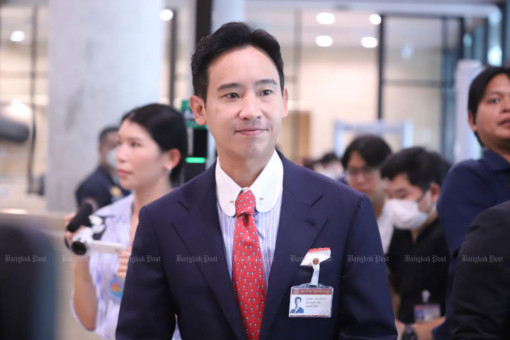Experts weigh in on possible scenarios

Academics have predicted how a new prime minister could be found and a new government formed ahead of Wednesday’s second prime ministerial vote in parliament.
Wanwichit Boonprong, a political science lecturer at Rangsit University, told the Bangkok Post the chances of Move Forward Party (MFP) leader Pita Limjaroenrat becoming the new prime minister had fallen ahead of the second round of voting.
“Ahead of the first round of voting on July 13, the chance was less than 50%, but now it is only 30%,” Mr Wanwichit said.
Mr Pita’s PM bid hangs in the balance due to several unfavourable factors, including a dispute over whether the motion regarding his renomination in parliament can be allowed while it remains to be seen whether the Constitutional Court will decide to accept for consideration a case involving his previous iTV shareholding and order his suspension.
If he still fails to secure sufficient support for his bid for the premiership in the second round of voting, he will no longer have any legitimacy to proceed with his bid for the prime minister role, Mr Wanwichit said.
He said if Srettha Thavisin, one of the Pheu Thai Party’s three prime ministerial candidates, is nominated for the role, he may receive more support from senators than Mr Pita.
“This probability is now 80%, but whether support from senators will be enough remains to be seen,” he said.
Another possibility is that the MFP will be forced into opposition as it cannot work with parties not part of its coalition under the MoU they all signed, he said.
“This probability is 50%, but it remains to be seen whether Mr Srettha will be able to control MPs from parties of the outgoing government [if the parties are approached to join a new coalition government led by Pheu Thai],” Mr Wanwichit said.
But he said he believed this could be a ploy to get Mr Srettha to form an alternative coalition with Palang Pracharath Party leader Prawit Wongsuwon becoming prime minister, though he put that possibility at only 25%.
Another scenario involves forming a minority government by seeking the support of renegade MPs from the MFP and Pheu Thai, Mr Wanwichit said.
“But I don’t think anyone will attempt that as such a government lacks legitimacy. Doing so will trigger political chaos. This possibility is less than 20%,” he said.
Olarn Thinbangtieo, a political science lecturer from Burapha University, told the Bangkok Post that Mr Pita has little chance of becoming prime minister in the second round of votes as most senators frown upon him. “The chance is only 30%,” he said.
As for Mr Srettha, he is likely to be nominated for prime minister, though senators will not vote for him if the MFP remains a coalition ally of Pheu Thai, he said.
One scenario is that an alternative coalition would be formed, sidelining the MFP after today’s vote, Mr Olarn said. If Mr Pita fails to secure support for his PM bid, Pheu Thai will have a justification to refuse to comply with the MoU they signed and free itself from the MFP-led coalition, he said.

